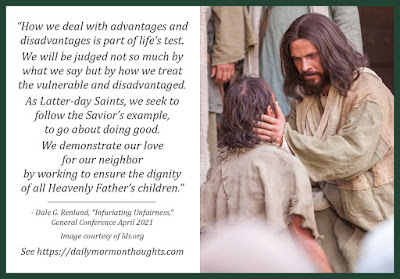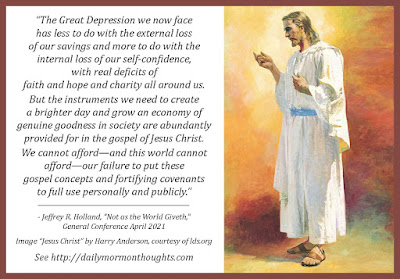"Pondering, which means to weigh mentally, to deliberate, to meditate, can achieve the opening of the spiritual eyes of one's understanding. Also, the Spirit of the Lord may rest upon the ponderer....
"We are constantly reminded through the scriptures that we should give the things of God much more than usual superficial consideration. We must ponder them and reach into the very essence of what we are and what we may become....
"To soundly plant good seeds in your heart requires prolonged, intense, unremitting pondering. It is a deep, ongoing, regenerating process which refines the soul....
"In our quest for pure hearts, may we ponder on righteous acts and thoughts, and may we be faithful and diligent.
"I bear earnest and sincere testimony to the mighty transforming power of these noble ideals."
- Joseph B. Wirthlin, "Pondering Strengthens the Spiritual Life," General Conference April 1982; click here to read the full talk
Elder Wirthlin's messages were often thought-provoking and memorable; it's clear that he practiced the principles he preached in this sermon. For us, in our busy lives, it's easy to forget the principle of pondering. We often feel accomplished if we manage to "check the box" of our daily scripture reading; and if we're not careful, without real pondering, our reading becomes rote and superficial. The power and the blessing truly come in the pondering.
And I love the adjectives Elder Wirthlin chooses to describe how we should ponder: "prolonged, intense, unremitting." Those words imply a depth of commitment that is sincere and lasting.
When I ask myself if my pondering of the scriptures or other important spiritual teachings is truly "prolonged, intense, [and] unremitting," I believe I need to try harder. But the beauty comes in the promises of regeneration, refining of the soul, the opening of spiritual eyes, increased presence of the Spirit, and "mighty transforming power." Is it worth the effort??
(Compilation and commentary by David Kenison, Orem, Utah, 2021)
Jan 27, 2015



































